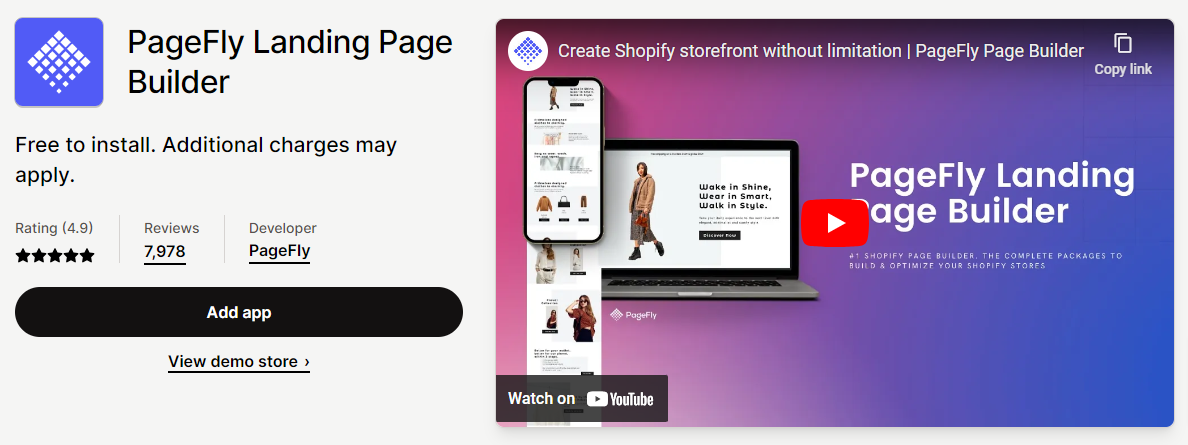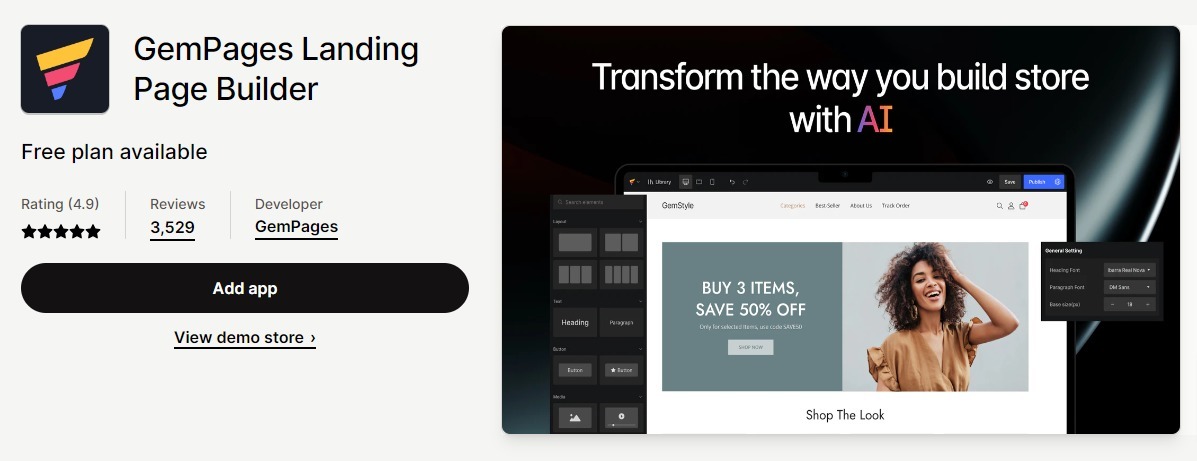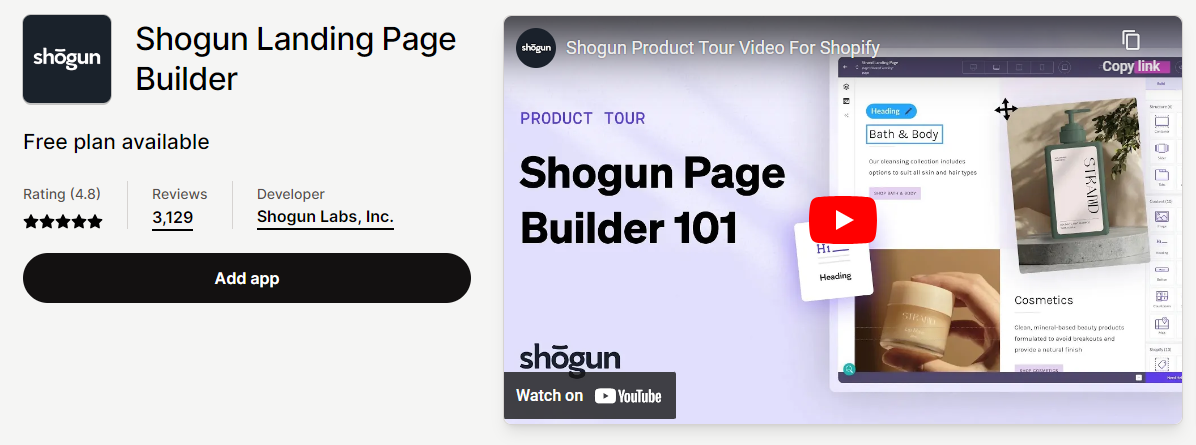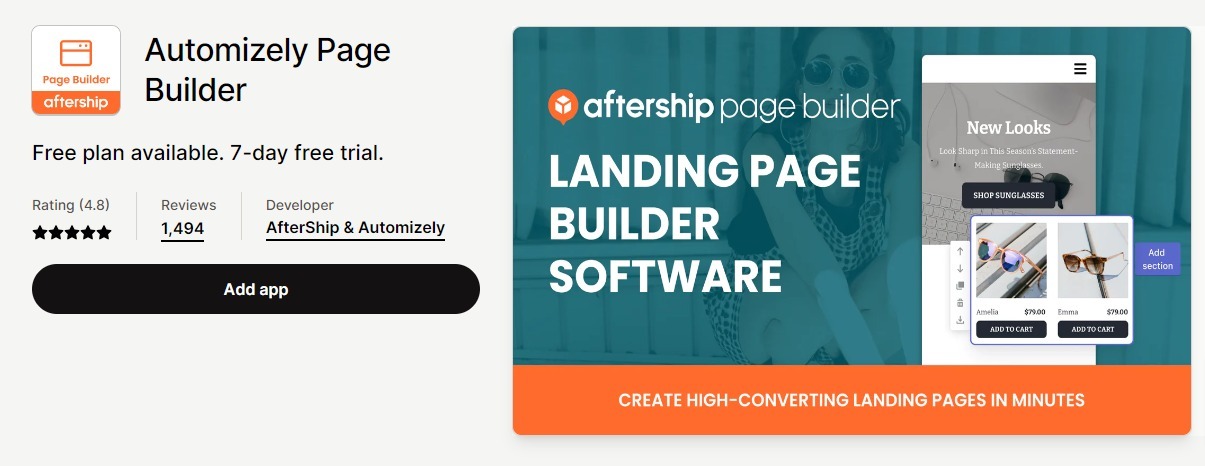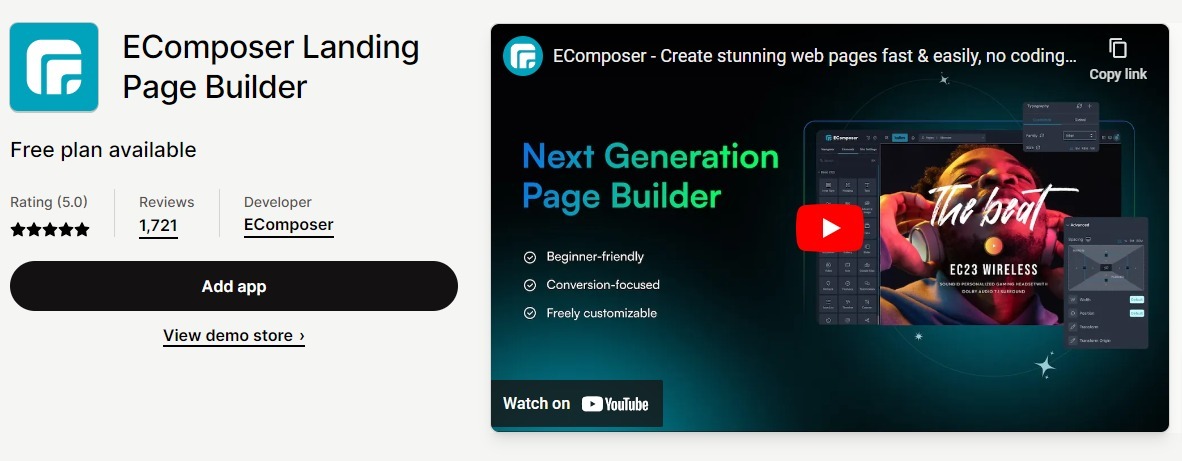As e-commerce continues to grow and evolve, businesses strive to create captivating online stores to attract and retain customers. A well-designed website can make all the difference in converting visitors into loyal buyers. LayoutHub, a popular e-commerce page builder, has been a go-to choice for many online merchants. However, there are several other worthy contenders in the market, each with its unique features and advantages. In this blog, we will explore a list of the best LayoutHub alternatives and competitors to help you find the perfect page builder for your e-commerce needs.
What are the reasons making you seek LayoutHub alternatives?
LayoutHub has been a prevalent and trusted choice for many businesses and individuals who want to build and optimize their e-commerce stores. It is famous for its powerful features such as its intuitive interface, smooth drag-and-drop editor, and excellent customer support. However, this page builder still has some limitations that make some users seek alternatives to LayoutHub. Here are the common reasons that may lead to the search for alternative options.
Limited design flexibility: Although LayoutHub provides a variety of templates and customization options, some users may find that their desired designs cannot be fully achieved due to limited flexibility in design customization.
Limited elements and sections: While LayoutHub offers a range of elements and sections, some users may require additional elements or sections that are not available in the app’s library.
Performance impact: Depending on the complexity of the design and the number of elements used, LayoutHub-generated pages may impact the website’s loading speed, leading to a poor user experience.
Dependency on a third-party app: Using LayoutHub means relying on a third-party app for website design, which may result in dependencies and potential issues if the app’s functionality or support is discontinued or changed.
Compatibility concerns: Some users may face compatibility issues when integrating LayoutHub with other Shopify apps or functionalities, which can result in conflicts or limited functionality.
5 Best LayoutHub Alternatives and Competitors
PageFly
Pagefly is one of the leading page builder apps for Shopify at present. This app allows you to easily create stunning and customizable landing pages, product pages and blog posts without writing any line of code. In addition, this page builder has received over 7,500 positive feedback Shopify app store. Most users prefer to use this app due to its easy-to-use interface and cheap cost. The paid version of Pagefly starts at $24/month which is slightly cheaper than other page builders.
Additionally, it comes with over 120 bewitching pre-made templates that allow you to customize to match your brand style. While both PageFly and LayoutHub integrate with Shopify, PageFly also offers integrations with other apps and platforms, such as Mailchimp and Google Analytics, allowing users to connect their page-building efforts with their existing marketing and analytics tools.
| Pros | Cons |
|
|
Gempages
Another serious competitor of LayoutHub is Gempages which also offers a user-friendly drag-and-drop page builder for Shopify. It allows users, even those without coding knowledge, to create stunning and professional-looking web pages. With Gempages, users can easily customize their website’s design and layout, add sections, and optimize for mobile devices.
One of the outstanding features of Gempages is its collection of bewitching pre-designed templates and blocks that are diverse compared to LayoutHub. These templates are fully customizable and can save users significant time when building their online store. Gempages also offers a list of useful elements and widgets that can be easily added to pages, such as buttons, countdown timers, and accordions. Last but not least, Gempages has a more affordable pricing structure, making it an attractive option for small and medium-sized businesses.
The paid plans of Gempages range from $29/month to $199/month.
| Pros | Cons |
|
|
Shogun
Shogun is also a great Layout alternative that helps you streamline the process of creating your desired web page. It is also built with an intuitive drag-and-drop interface, so it is an idea for beginners and experienced users alike to design professional-looking websites in just minutes. Besides that, the app is packed with a gallery of 70 pre-built templates that cater to different sectors such as health, beauty, fashion and much more.
Moreover, it offers a lot of advanced features such as responsive design, SEO optimization and detailed analytics to help users optimize their websites for maximum impact. Notably, Shogun is widely used by e-commerce store owners, as it seamlessly integrates with platforms like Shopify, Magento, and BigCommerce, offering specialized elements for product displays and online stores. However, this page builder is slightly more expensive than LayoutHub, so it will be suitable for middle and large businesses.
| Pros | Cons |
|
|
Automizely
Automizely is a well-designed page builder to assist a lot of website owners to build their dream stores within minutes. This app not only has an easy-to-use interface but also offer a vast collection of ready-to-use element and built-in eCommerce conversion tools. Hence, it can help store owners save time and effort in designing high-converting pages.
Further, your clients will receive professional templates that meet their specific needs with this app. It supports various types of pages, including about us, blog posts, collections, contact, FAQs, home, and product pages. Additionally, this impressive alternative to LayoutHub provides an analytics dashboard to track important metrics like add-to-cart rates, total subscribers, and visitor numbers.
The paid version of Automizely starts at $35/month.
| Pros | Cons |
|
|
Ecomposer
EComposer is the last notable Layouthub alternative, allowing you to design various parts of your Shopify store, such as the homepage, product and collection pages, footer, and more. The application offers a collection of over 30 pre-made layouts for you to select from. These layouts are fully customizable, allowing you to remove elements you dislike, rearrange components, and incorporate additional sections according to your preferences.
In addition, EComposer includes various important design elements such as headings, buttons, sliders, countdowns, trust badges, testimonials, and many others. Further, the app provides a range of extensions that enhance the effectiveness of these page elements, such as colour swatches, a sticky add-to-cart feature, and blocks that suggest frequently bought items together. In order to use the paid version of EComposer, you only need to pay $19/month.
| Pros | Cons |
|
|
The bottom line
To conclude, each of these LayoutHub alternatives offers unique features and benefits, so it’s crucial to consider your specific needs and requirements when selecting the best option for your business. Whether you’re looking for a simple page builder or a comprehensive e-commerce platform, we highly recommend using PageFly for your website. This page builder comes with tons of powerful features and is extremely easy to use, so it is suitable for beginners. And what is your selection, let’s leave your option in the comment below.
If you are satisfied with our blog, don’t hesitate to share it with your friends. Furthermore, don’t forget to discover our collection of fully mobile-friendly and SEO-friendly Shopify templates here. Thanks for your reading.

